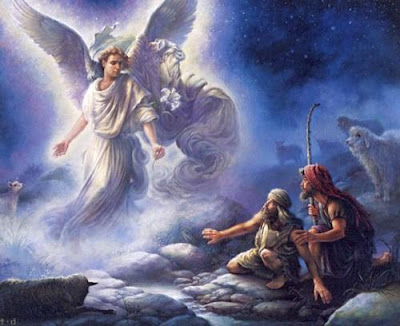In Matthew chapter 2 we have the story related to us of the wise men who traveled from afar, seeking to find the newborn King ever since they had seen His star appear in the sky. They arrived in Jerusalem whereby they eventually spoke with King Herod, who feigned interest in finding the Child himself so that he, too, could come and worship Him. Once the wise men found the Child, they bowed down to worship Him, and they bestowed wondrous gifts upon Him of gold, frankincense and myrrh. However, the Lord warned the wise men in a dream not to let Herod know where the Child was so they then returned to their own country by a different route. In a rage at being fooled, Herod ordered the slaughter of all male children in and around Bethlehem who were 2 years and younger in an attempt to murder this Kingly rival, but Herod’s plot was foiled as an angel from the Lord warned Joseph to take his family and flee into the safety of Egypt. Just as in those days of old, wise men today still seek the Lord, and they will be able to find Him. As Paul said in Acts 17:27, “He is not far from each one of us.”
So why did these Magi, these wise men, worship Jesus? They did so because Jesus deserves our worship because Jesus is worthy of our worship. “Worthy are You, our Lord and God, to receive glory and honor and power, for You did create all things, and by Your will they existed and were created.” (Revelation 4:11)
There was a day when Jesus climbed a high mountain and took along with Him Peter, James and John, and right before their eyes His form changed. His garments glowed. Suddenly, two other individuals appeared with Him: Elijah and Moses, two towering figures from Israel's past. Peter, frightened and not knowing what to do, suggested making three sacred tents to recognize the awesome presence of these three: Elijah, Moses and Jesus. But it was at that point a cloud formed, and a voice came out of the cloud, saying, "This is My beloved Son; listen to Him” (Mark 9:7). Peter and the others looked around and saw no one with them anymore, "except Jesus only" (Mark 9:8).
Jesus only. As the glory of Jesus was displayed for the disciples, as they saw attributes of His Deity expressed in physical form, Elijah and Moses came on the scene in supporting roles. Soon, they would be gone, and the disciples would see Jesus only. They saw Jesus only, because only Jesus was worthy of their worship. Only He is the beloved Son. Jesus is worthy of our worship because He is God. Jesus is absolutely sovereign, absolutely righteous and absolutely unchanging (Hebrews 1:12; Hebrews 13:8). The Magi knew that Jesus was, indeed, worthy of worship. Will you not recognize this, too, and bow down to worship Him today?
May the Lord bless you throughout this year!
So why did these Magi, these wise men, worship Jesus? They did so because Jesus deserves our worship because Jesus is worthy of our worship. “Worthy are You, our Lord and God, to receive glory and honor and power, for You did create all things, and by Your will they existed and were created.” (Revelation 4:11)
There was a day when Jesus climbed a high mountain and took along with Him Peter, James and John, and right before their eyes His form changed. His garments glowed. Suddenly, two other individuals appeared with Him: Elijah and Moses, two towering figures from Israel's past. Peter, frightened and not knowing what to do, suggested making three sacred tents to recognize the awesome presence of these three: Elijah, Moses and Jesus. But it was at that point a cloud formed, and a voice came out of the cloud, saying, "This is My beloved Son; listen to Him” (Mark 9:7). Peter and the others looked around and saw no one with them anymore, "except Jesus only" (Mark 9:8).
Jesus only. As the glory of Jesus was displayed for the disciples, as they saw attributes of His Deity expressed in physical form, Elijah and Moses came on the scene in supporting roles. Soon, they would be gone, and the disciples would see Jesus only. They saw Jesus only, because only Jesus was worthy of their worship. Only He is the beloved Son. Jesus is worthy of our worship because He is God. Jesus is absolutely sovereign, absolutely righteous and absolutely unchanging (Hebrews 1:12; Hebrews 13:8). The Magi knew that Jesus was, indeed, worthy of worship. Will you not recognize this, too, and bow down to worship Him today?
May the Lord bless you throughout this year!










